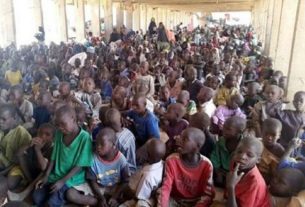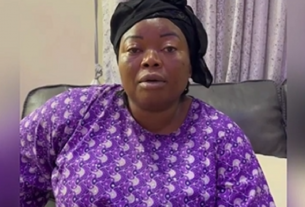Child Rights Advocates: Idara Kalu (CSG Foundation), Debo Adeniran (CACOL), and Okechukwu Nwaguma (RULAAC)
In the wake of a damning investigative report exposing an underground child pornography syndicate operating across X (formerly Twitter) and Telegram, civil society organisations and global child protection experts are calling for urgent and coordinated action to tackle the crisis of online child sexual exploitation in Nigeria.
They also urged the Federal Government to bring the syndicate selling the pornographic content of Nigerian children in plain sight to justice.
The two-part report, titled, “Exposed! How teenage boys are lured into selling nudes for cash (1) and (2)”, published by PUNCH, revealed the activities of a shadowy figure known as @Hidden_Domain, who has been exploiting young Nigerian boys for profit, sharing explicit content via anonymous social media accounts and protected digital groups.
The investigation, which spanned eight months, used technology to uncover not only the syndicate’s methods but also identified no fewer than 26 victims and traced some of the financial transactions involved, linked to a tier-one Nigerian bank.
Reacting to the findings, the Executive Director of the Rule of Law and Accountability Advocacy Centre, Mr Okechukwu Nwaguma, said the revelations point to a systemic failure in cyber enforcement and child protection.
“Your investigation highlights a grave issue that requires urgent attention. The proliferation of child pornography online, particularly involving young boys, is both alarming and unacceptable.
“The existence of individuals like @Hidden_Domain underscores the need for stronger enforcement of laws against child exploitation and effective cyber monitoring,” Nwaguma said.
He called for increased public awareness, tech accountability, and policy reform to ensure children are better protected online.
Executive Director of the Centre for Anti-Corruption and Open Leadership, Debo Adeniran, also praised the investigation, noting that, unlike previous unsubstantiated allegations, the report by this reporter provided credible evidence that could support legal action.
“I greet you for the great job you’ve done on juvenile sex exploitation. The syndicate is powerful and influential. But most of those who come up with allegations are often without reliable evidence and witnesses.
“We’re glad that you have enough evidence going by your report herein,” Adeniran said, hinting at plans to confer with colleagues on potential legal strategies to prosecute the perpetrators.
The Executive Director, Child Solidarity Foundation, Idara Kalu, also commended the report, urging all parents, guardians and government officials who work or interface with children to read the report.
She said CSG Foundation was working with relevant stakeholders to formulate a policy document for digital safety for children on the Internet.
She said the major problem is from the place of awareness, adding that many children are unaware that the Internet never forgets.
“We need to continually sound it in the ears of every teenager out there who has access to a smartphone that there is no need to share sensitive photos or videos of themselves to anyone for any reason.
“It is unnecessary. It violates their rights as children and puts them in harm’s way.
“We at the CSG Foundation condemn in its entirety the menace called child pornography and child sextortion, which has been named one of the leading causes of teenage suicides around the world.
“We are formulating a resource for children between the ages of seven and 16 to train them on digital safety and their rights as children on the internet, and how to manage these digital predators.”
She also urged the Federal Government to make sure this syndicate fingered in the report is brought to book and made to face justice.
“There should be no excuse. The investigation is a fine place to start. The government must step in to make sure we set an example of this culprit,” she said.,
The report has also drawn attention to the broader issue of online child sexual exploitation. According to the Childlight Global Child Safety Institute, more than 300 million children are victims of online sexual exploitation and abuse each year, including sextortion.
The Nigerian government has been urged to strengthen existing laws, such as the Child Rights Act (2003) and Cybercrime (Prohibition, Prevention, etc.) Act 2015, to better protect children from digital predators.
There are also calls for the establishment of a dedicated agency focused on the rights and welfare of children in the digital age.
The Punch





